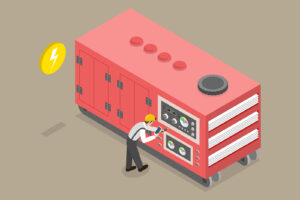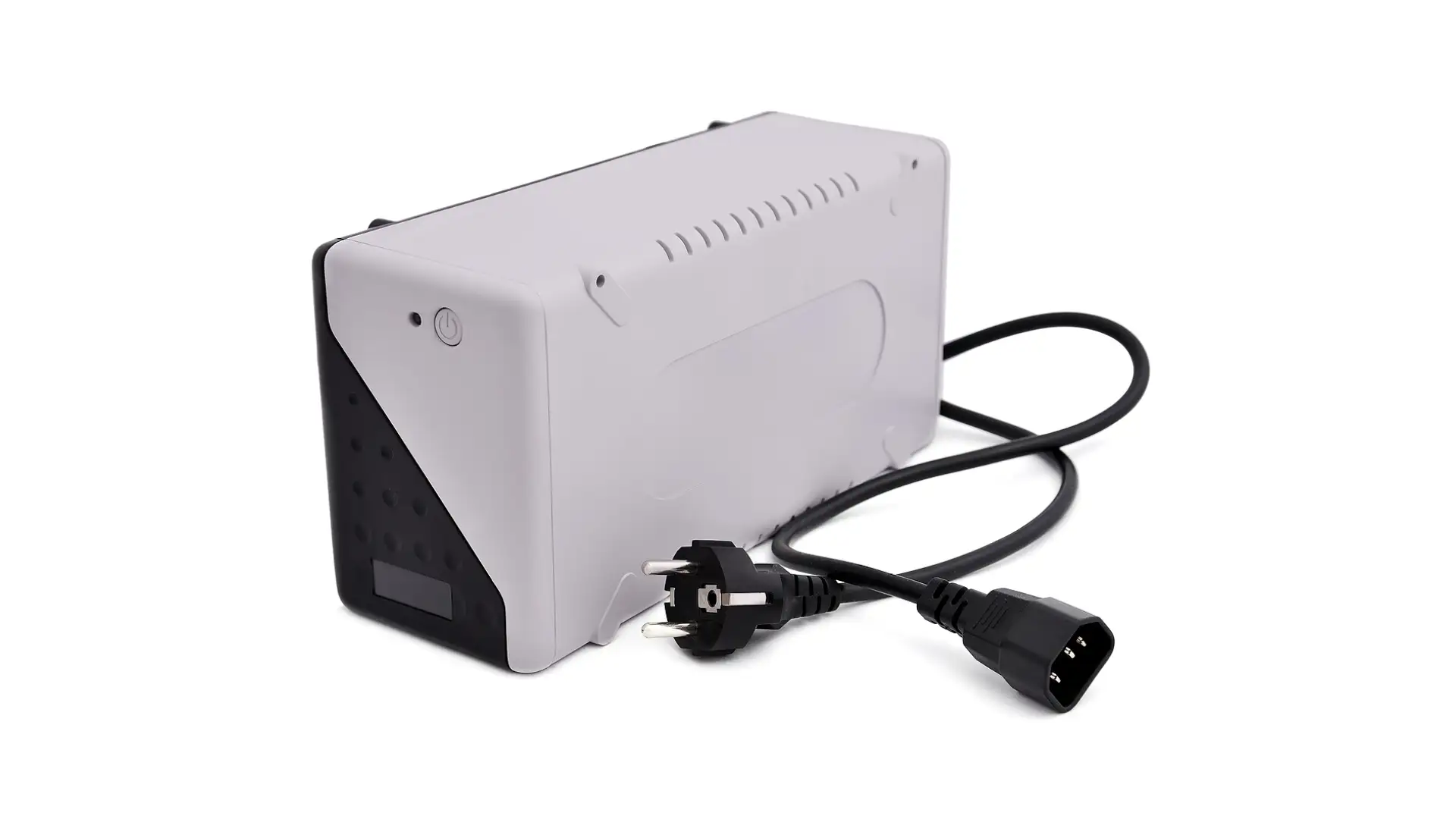
Understanding the Importance of Backup Power Systems in Outpatient Surgery Centers
Outpatient surgery centers depend heavily on backup power systems to ensure uninterrupted healthcare services and patient safety. These systems are an essential lifeline for these medical facilities, as a power outage during a surgical procedure can have far-reaching and potentially disastrous consequences.
In an outpatient surgery center, numerous life-sustaining and surgical equipment rely on a continuous power supply. These include but are not limited to anesthesia machines, monitoring devices, lighting, and HVAC systems. Any disruption in power can result in equipment failure, compromising the patient's well-being and the success of the procedure.
Moreover, patients in outpatient surgery centers often undergo procedures that require precision and minimal interruption. A sudden power outage can lead to delays, which can cause complications or discomfort for patients. To maintain a safe and efficient environment, outpatient surgery centers must prioritize the installation and maintenance of robust backup power systems.
These systems typically include uninterruptible power supplies (UPS) and generators that can seamlessly take over in the event of a power failure. The UPS provides immediate short-term power to critical equipment, while generators kick in to sustain power for extended periods. This dual-layered backup power strategy ensures that even during prolonged outages, surgery centers can continue to function without compromising patient safety.
Backup Power System Types
There is a diverse range of backup power systems available in the market, each designed to cater to specific needs and environments. When it comes to selecting the right backup power system for an outpatient surgery center, it's essential to explore various options, including:
Uninterruptible Power Supplies (UPS)

Uninterruptible Power Supplies (UPS) are essential devices designed to ensure a seamless power supply in the event of electrical outages. These versatile systems serve a variety of critical functions, particularly in contexts where uninterrupted power is paramount.
Functionality: UPS systems operate by storing electrical energy in batteries, ready to be deployed at a moment's notice when the main power source fails. This immediate power supply helps prevent disruption in vital operations, such as those found in medical settings. Moreover, UPS units incorporate power conditioning features that safeguard against power surges and voltage fluctuations, enhancing the overall stability of the electrical supply.
Applications and Suitability: UPS systems find indispensable use in various environments, with outpatient surgery centers being one prime example. In healthcare facilities, they play a crucial role in ensuring that essential medical equipment remains operational during power interruptions. This not only safeguards patient care but also allows for a smooth transition to alternative power sources, such as backup generators
Generators
Generators are a prevalent and essential backup power system used extensively in diverse sectors, including healthcare facilities. These systems play a critical role in ensuring uninterrupted power supply during emergencies and power outages.
Functionality: Generators operate by converting mechanical energy, typically generated from an internal combustion engine, into electrical energy. This process enables them to supply power continuously as long as they have access to a steady source of fuel, such as diesel, natural gas, or propane. This characteristic makes generators capable of providing electricity for extended periods, making them a reliable source of backup power.
Suitability: In healthcare settings, generators are particularly well-suited for outpatient surgery centers due to their ability to supply power continuously. This is crucial for ensuring that essential medical equipment, lighting, and HVAC systems remain operational, even during extended power outages. Generators work seamlessly with Uninterruptible Power Supply (UPS) systems, complementing each other's strengths. UPS systems can bridge the brief gap between a power outage and the generator's startup, ensuring uninterrupted power supply for critical medical procedures. As a result, outpatient surgery centers can rely on this combination of backup power solutions to maintain the highest standards of patient care and safety.
Battery-Inverters
Battery-inverter systems, also known as uninterruptible power supplies (UPS) with battery backup, offer an extended and versatile power solution. These systems are engineered to deliver electricity for more extended durations, making them well-suited for various applications.
Functionality: Battery-inverters serve as a dependable power source during outages, ensuring uninterrupted operations for critical equipment and appliances. Beyond this, they play a crucial role in maintaining power quality by safeguarding against voltage fluctuations and power surges. This feature makes them indispensable in scenarios where sensitive electronics or medical equipment must remain operational at all times.
Suitability: Battery-inverters find their niche in settings like outpatient surgery centers, where even brief power interruptions can have serious consequences. Given their ability to provide power for extended periods, they can keep essential medical equipment running during extended outages, preserving patient safety and the continuity of healthcare services. However, it's important to note that like UPS systems, the effectiveness of battery-inverters hinges on the capacity and condition of their batteries. Regular battery replacement and maintenance are essential to ensure their reliability and functionality over time. This ongoing commitment to upkeep is a crucial aspect of integrating battery-inverter systems into any facility's power infrastructure.
Fuel Cells
Fuel cells represent a cutting-edge backup power system that harnesses electricity through a chemical reaction, primarily involving hydrogen. These systems offer an advanced and eco-friendly alternative to traditional power sources.
Functionality: Fuel cells are known for their remarkable ability to generate electricity cleanly and efficiently. Unlike conventional generators, they can continue operating as long as they have a readily available fuel source, making them a reliable choice for uninterrupted power supply.
Suitability: Although fuel cells hold significant potential, their adoption may face certain challenges. One notable obstacle is their relatively high initial cost, which can deter outpatient surgery centers with limited budgets. Additionally, establishing the necessary infrastructure for hydrogen supply can be a complex and costly endeavor.
However, outpatient surgery centers committed to sustainable and environmentally-friendly power solutions can find fuel cells to be an excellent fit. Despite the initial investment, fuel cells offer a long-term payoff in terms of reduced carbon emissions and energy efficiency. As the world continues to emphasize green energy solutions, fuel cells are poised to play a pivotal role in shaping the future of backup power systems.
Factors to Consider When Choosing a Backup Power System

When outpatient surgery centers are faced with the decision of selecting an appropriate backup power system, it's crucial to take into account several factors in order to make a well-informed choice. These considerations include:
- Power Requirements: Evaluating the power requirements of your facility is paramount. Carefully assess the electricity needs of your center, taking into consideration all critical equipment that must remain operational during a power outage. This includes surgical equipment, life-support systems, and essential lighting.
- Duration of Power Support: Different backup power systems offer varying durations of power support. Uninterruptible Power Supply (UPS) systems and battery-inverters rely on the capacity of their batteries, which may provide power for a limited time. In contrast, generators and fuel cells can offer extended power support as long as they have a supply of fuel or energy source.
- Budget: The cost of backup power systems can vary significantly. Generators and UPS systems are often more budget-friendly options, while fuel cells can be relatively expensive due to their advanced technology and efficiency. It's essential to align your choice with your budget constraints.
- Environmental Impact: For centers that prioritize sustainability and environmental responsibility, considering the ecological impact of the backup power system is essential. Some systems, like fuel cells, are known for being a clean and eco-friendly energy source, making them a suitable choice for those aiming to reduce their carbon footprint.
- Maintenance Needs: All backup power systems require regular maintenance to ensure their reliability during emergencies. However, the complexity and frequency of maintenance can vary among different systems. Understanding the maintenance requirements and associated costs is vital for long-term planning and system effectiveness.
- Local Regulations: To avoid legal and compliance issues, it's essential to be aware of local regulations governing backup power systems in healthcare facilities. Some jurisdictions may have specific requirements or restrictions that must be adhered to, so ensure your chosen system complies with these regulations.
Integration of Backup Power Systems into Facility Design
Integrating backup power systems into the facility design of outpatient surgery centers is a critical aspect of ensuring uninterrupted healthcare services. This process involves a series of steps and considerations to guarantee seamless integration and reliable backup power:
Comprehensive Site Assessment
The first step is conducting a comprehensive evaluation of the facility's electrical requirements and vulnerabilities. This includes identifying critical areas that must maintain power during outages, such as operating rooms, recovery rooms, diagnostic equipment, and life-support systems. Understanding the facility's specific power needs is essential for designing an effective backup system.
Redundancy in Design
To achieve maximum reliability, incorporate redundancy into the electrical design. This entails creating backup systems that can seamlessly take over in case of a power failure. This might involve designing redundant electrical circuits, power distribution paths, and backup generators to ensure continuous power supply to critical areas.
Dedicated Space Allocation
Allocate specific, well-planned spaces within the facility to house backup power equipment. These spaces should be designed to accommodate generators, uninterruptible power supply (UPS) units, battery banks, and related infrastructure. Accessibility, security, and proper ventilation are key factors to consider when selecting these locations. Adequate space also allows for ease of maintenance and repairs.
Fuel Source Planning
If backup power systems rely on generators or fuel cells, careful planning for fuel storage and delivery systems is essential. Complying with local regulations and safety standards for fuel storage is crucial to minimize environmental and safety risks. Ensure that fuel sources are regularly inspected, refilled, and properly maintained to guarantee a reliable fuel supply during extended power outages.
Automatic Transfer Switches (ATS)
Install automatic transfer switches (ATS) to streamline the transition from primary power to backup power sources. ATS systems detect power interruptions and automatically switch to backup power, minimizing downtime and ensuring a smooth transition. Proper wiring and electrical connections are imperative to avoid complications during emergencies, making ATS installation a critical component of the backup power infrastructure.
The Ideal Combination
Outpatient surgery centers face critical challenges when it comes to ensuring a consistent and reliable power supply. The critical nature of healthcare procedures and the potential risks associated with power interruptions demand a comprehensive approach to power management. One widely adopted strategy involves the integration of multiple power systems to safeguard against disruptions.
One of the most common combinations employed in outpatient surgery centers is the use of both an Uninterruptible Power Supply (UPS) system and a generator. The UPS system plays a pivotal role by offering immediate power backup in the event of a sudden electrical outage. This feature is crucial as it bridges the gap during the brief period before the generator comes online, ensuring uninterrupted power delivery to vital medical equipment.
The UPS system not only prevents disruptions in surgical procedures but also protects sensitive medical devices from potential damage caused by abrupt power loss. Additionally, it provides healthcare professionals with the necessary time to safely transition to generator power without compromising patient care.
Backup Power Systems FAQs
1. Why are backup power systems crucial in outpatient surgery centers?
Backup power systems are vital in outpatient surgery centers because they ensure uninterrupted healthcare services and patient safety. These systems provide continuous power to critical equipment, preventing equipment failures and potential complications during surgical procedures.
2. What types of backup power systems are commonly used in outpatient surgery centers?
Commonly used backup power systems in outpatient surgery centers include Uninterruptible Power Supplies (UPS), generators, battery-inverters, and fuel cells. Each system has its advantages and can be chosen based on specific needs and budget constraints.
3. How do Uninterruptible Power Supplies (UPS) work, and where are they suitable?
UPS systems store electrical energy in batteries and provide immediate short-term power in case of electrical outages. They are suitable for outpatient surgery centers to ensure seamless power supply, protect sensitive equipment, and bridge the gap before generators kick in.
4. What is the role of generators in backup power systems for surgery centers?
Generators convert mechanical energy into electrical energy, offering continuous power as long as there's a fuel source. They are essential for outpatient surgery centers to sustain power for extended periods, ensuring critical equipment and systems remain operational during prolonged outages.
5. What are battery-inverters, and when are they beneficial?
Battery-inverters are backup power systems that provide electricity during outages and maintain power quality by safeguarding against voltage fluctuations. They are beneficial in outpatient surgery centers for their ability to supply power for extended durations, ensuring patient safety during extended outages.
6. Are fuel cells a suitable backup power option for surgery centers?
Fuel cells offer clean and efficient electricity generation but can be relatively expensive and require infrastructure for hydrogen supply. They are suitable for surgery centers that prioritize sustainability and are willing to invest in eco-friendly power solutions.
7. How should outpatient surgery centers choose the right backup power system?
When choosing a backup power system, outpatient surgery centers should consider factors such as power requirements, duration of power support, budget, environmental impact, maintenance needs, and local regulations. A combination of systems, like UPS and generators, is often the most effective approach.
8. What is the ideal combination of backup power systems for surgery centers?
A commonly used combination for outpatient surgery centers is the use of both Uninterruptible Power Supplies (UPS) and generators. UPS systems provide immediate backup power, bridging the gap until the generator starts, ensuring uninterrupted power supply for critical medical equipment and procedures.
9. How can outpatient surgery centers ensure the reliability of their backup power systems?
Regular maintenance is essential to ensure the reliability of backup power systems. Facilities should establish a maintenance schedule and conduct routine inspections and testing to verify that the systems are in working order.
10. Are there specific regulations governing backup power systems in healthcare facilities?
Yes, there may be local regulations and codes that govern the installation and operation of backup power systems in healthcare facilities. Surgery centers should be aware of these regulations to ensure compliance and avoid legal and compliance issues.
Final Thoughts
continue reading
Related Posts
Uninterrupted Power Supply For Computer In today’s fast-paced and digitally […]
Uninterruptible Power Supply For TV In the digital age, our […]
Uninterruptable Power Supply Company In my daily life, both personally […]



